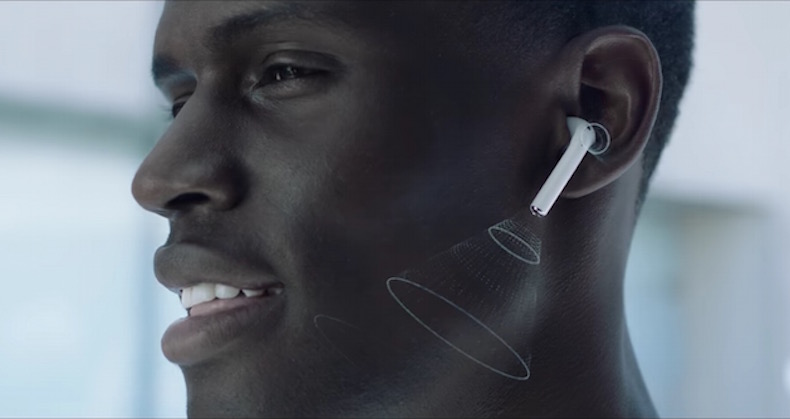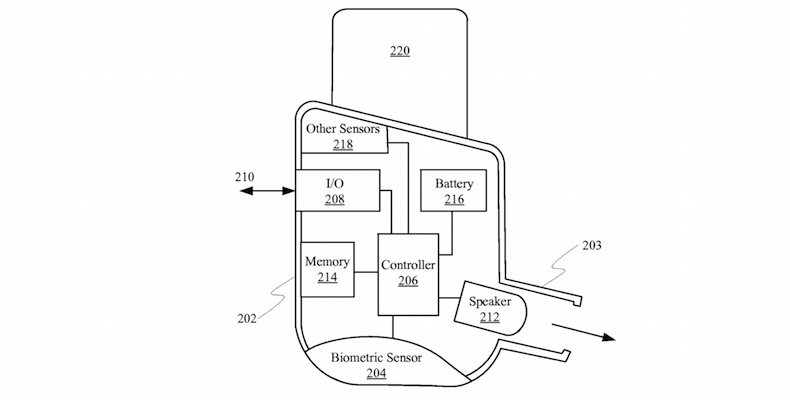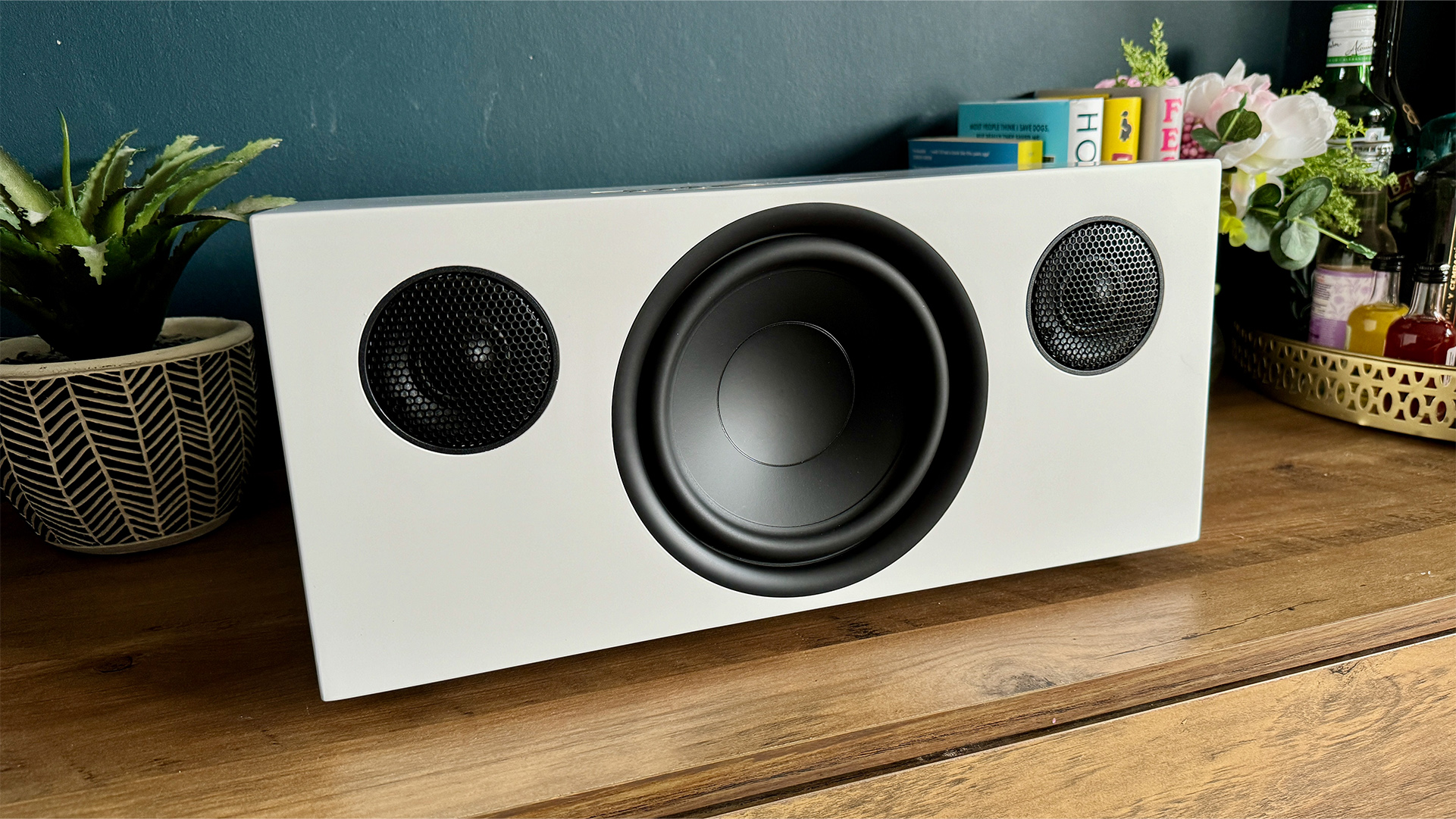Apple patents new headphones with health-tracking capabilities
The patents show designs for Apple Airpod Bluetooth headphones to track blood flow, heart-rate, temperature and more.

Apple has published three new patents indicating the company is working on new functionality for its Bluetooth-connected Airpods - giving the in-ear headphones biometric tracking and, possibly, noise cancellation.
Refering to “Earbuds with Biometric Sensing", Patently Apple explains the system is built around a photoplethysmogram (PPG) sensor able to detect blood-flow by shining a light onto an area of skin near the ear's tragus.
By tracking blood-flow, the PPG sensor can offer information on the wearer's heart-rate, VO2 (the maximum rate of oxygen consumption) and temperature.
This is the same kind of technology that's used in the Apple Watch. But conventional earbuds don't usually make constant contact in the same way a watch does, so the reliability of the data can be called into question.
MORE: Audeara headphones aim to deliver "perfect" sound

As well as biometric measuring, the earbuds could also provide noise-cancellation to eliminate audio within a 10-20 degree window - so wearers would still be able to hear nearby conversations - or cancel outside sound altogether.
Of course, Apple isn't the first company to experiment with health-tracking headphones. In 2014 SMS Audio and Intel collaborated to produce the BioSport, which used built-in biometric sensors to measure heart-rate and collect fitness data.
Get the What Hi-Fi? Newsletter
The latest hi-fi, home cinema and tech news, reviews, buying advice and deals, direct to your inbox.
More recently, Bose's SoundSport Pulse - our best in-ear wireless headphones - give a live read-out of the wearer's current heart-rate, with the information being sent to popular third-party apps including Strava, Endomondo and MapMyRun.
